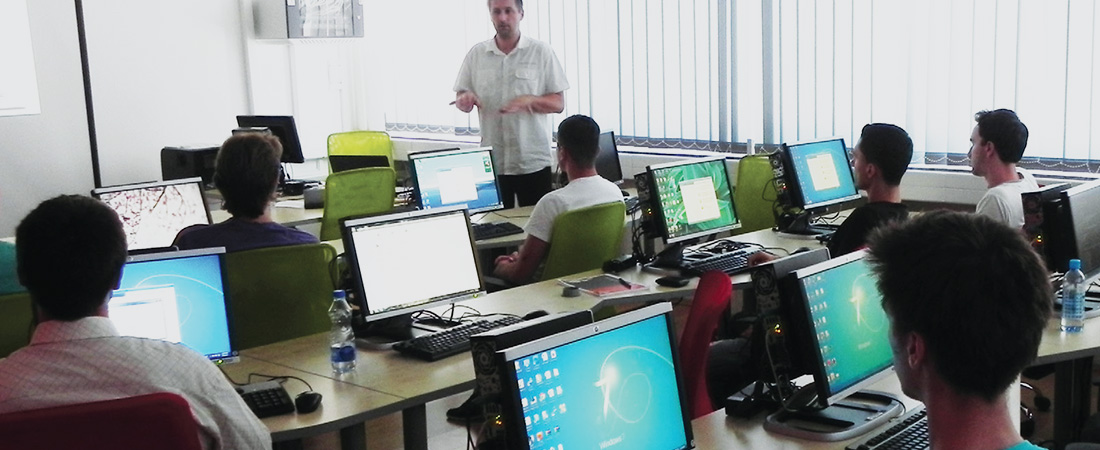ICT Skills Open Doors for Bosnian Youth

More than 15 years after the end of a brutal war that devastated the region, career options for young people in Bosnia and Herzegovina (BiH) are opening up in market niches such as software development and cloud- and mobile-based services and applications. But for youth hoping to tap into these opportunities, training is needed to bring them up to speed in information and communication technologies (ICTs).
“One of the challenges the ICT industry faces in Bosnia is that there aren’t a lot of people with the skills to work in that industry,” says EDC’s Cornelia Janke, who directs the USAID-funded Partnership for Innovation. The initiative was developed with dual intents: make existing small and medium ICT businesses in Bosnia more competitive and help youth get the job skills training they need to find employment or start their own businesses in this emerging industry.
Working with software development companies, EDC launched a pilot internship program this past summer to provide students with on-the-job training in the ICT skills needed for a range of in-demand technology sector careers, such as Web developer and software programmer. A group of 50 high school and university students took part in the four-week program, which was divided into theoretical and practical learning. Six private companies mentored the students, teaching them theory and guiding them through their own software development projects. The students also received soft skill and project management trainings.
“The internships provided students with a bridge from the classroom into business,” Janke says. “The internships show them how what they learned in school—for example, in math or engineering—is applied in business. They learned the theory behind software development and how to carry out and manage their own hands-on projects.”
The student internship program is just one part of a larger business development effort led by the Partnership for Innovation and aimed at helping youth gain the skills and harness the potential of ICTs to find employment and start businesses.
The Partnership for Innovation is also setting up four Business Innovation Centers in the cities of Tuzla, Banja Luka, Sarajevo, and Mostar. The centers’ purpose is two-fold: to help small- and medium-sized businesses use ICTs to enhance their competitiveness and productivity and to support youth who are seeking jobs or want to start their own businesses by providing ICT and job skills training. The centers will also act as hubs connecting educational institutions, academia, government bodies, businesses, investors, global ICT vendors, professional communities, and youth, and lead innovation initiatives and foster development of the local economy through the use of ICT.
Janke says she hopes the centers will ultimately be self-sustaining. “We’re also developing a business angels network in the region, because financing for companies is very hard to obtain. We’re hoping to find investors who are willing to support startup companies in the technology sector. We’re also working with existing business incubators that have relationships with universities.”